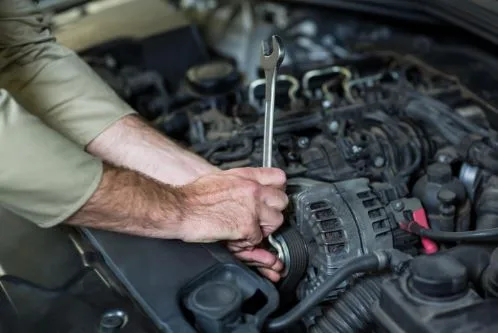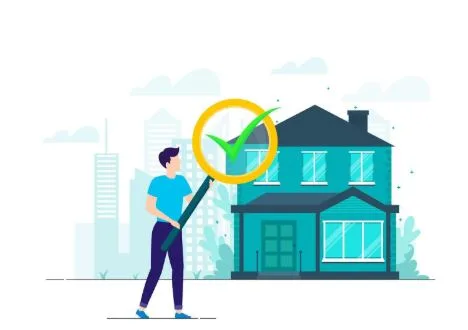Why Rebuilding Your Hyundai Engine Can Save You Money: A Guide to Engine Reconditioning
When your Hyundai vehicle starts showing signs of engine trouble, one of the most cost-effective options to consider is engine reconditioning. Whether you’re driving a Hyundai Iload, Hyundai Tucson, or Hyundai I30, the idea of rebuilding your engine might seem like a daunting task. However, opting for a reconditioned engine rather than a full replacement can save you a significant amount of money while extending the life of your car. In this article, we’ll break down why rebuilding your Hyundai engine can be a great financial decision, and guide you through the reconditioning process.
- What Is Engine Reconditioning?
Before we explore the financial benefits, it’s essential to understand what engine reconditioning involves. Rebuilding or reconditioning an engine means restoring it to its original specifications by repairing or replacing faulty parts. The goal is to bring the engine back to life, ensuring it runs smoothly and efficiently without the high costs of a full replacement.
A Hyundai engine rebuild typically involves:
- Disassembling the engine: Removing all the internal components and inspecting them for wear and tear.
- Cleaning and inspecting parts: Thoroughly cleaning the engine parts and inspecting them for any damage that might affect performance.
- Replacing worn-out components: Replacing parts such as pistons, valves, bearings, and seals that show signs of excessive wear.
- Reassembling the engine: After all necessary repairs, the engine is carefully reassembled and tested to ensure it meets the original specifications.
Whether you need a Hyundai Iload engine rebuild or a Hyundai Tucson engine overhaul, this process allows you to breathe new life into your engine at a fraction of the cost of a new one.
- The Cost-Effectiveness of Rebuilding Your Engine
One of the biggest advantages of opting for a reconditioned engine is the cost savings. A Hyundai engine for sale, whether it’s a Hyundai Iload engine or Hyundai Tucson engine, can often be very expensive, especially if it’s a brand-new replacement. Rebuilding your current engine can offer a much more affordable alternative.
Rebuild vs. Replacement:
- Cost of Rebuilding: Rebuilding your engine can cost between 30% to 50% less than purchasing a brand-new engine. The exact savings depend on the condition of the engine, the parts needed, and the complexity of the rebuild. For example, a D4CB Hyundai Iload engine rebuild may involve replacing the turbocharger or fuel injectors, which can be more cost-effective than buying a new engine.
- Cost of Replacement: Purchasing a new engine means paying for the entire unit, labor, and installation, which can add up to several thousand dollars. Plus, if you need a Hyundai I30 engine replacement, you could face additional costs for recalibration, alignment, and other associated services.
By opting for a rebuild, you’re essentially extending the life of your current engine without incurring the high upfront costs associated with a brand-new engine.
- Environmental Benefits of Engine Rebuilding
Not only is rebuilding your engine a great financial choice, but it’s also an environmentally friendly option. Reconditioning your Hyundai diesel engine, such as the D4CB engine, reduces waste and conserves resources by reusing the parts that are still in good condition. In comparison, buying a completely new engine requires the production of new components, often involving significant energy and material consumption.
Why Rebuild for the Environment?
- Reduce Waste: Reconditioning keeps existing parts out of landfills, which is better for the environment.
- Lower Carbon Footprint: Building a new engine from scratch requires substantial energy. Rebuilding an engine uses fewer resources and results in less pollution.
- Sustainability: By choosing a reconditioned engine, you’re making a choice that benefits not only your wallet but also the planet.
So, rebuilding your Hyundai engine is not only about saving money, but also about contributing to a more sustainable automotive industry.
- Performance Benefits of Rebuilding Your Hyundai Engine
A well-executed engine rebuild can restore your Hyundai engine to a like-new condition, improving overall performance. For instance, when you rebuild a Hyundai I30 engine or a Hyundai Iload engine, you’ll likely notice improved power, fuel efficiency, and smoother operation.
How Rebuilding Enhances Performance:
- Better Compression: Over time, engine components such as pistons and valves can wear out, affecting the engine’s compression. A rebuild restores compression, allowing the engine to perform as it was originally designed.
- Improved Fuel Efficiency: A rebuilt engine will typically run more efficiently, meaning it’ll burn fuel more effectively, which results in better miles per gallon (MPG).
- Restored Power and Torque: Worn-out engine components can cause a loss of power and torque. Rebuilding your Hyundai Iload engine or Hyundai Tucson engine brings back the original power output, ensuring optimal performance.
- Eliminating Engine Noise: If your engine is making strange noises due to worn-out parts, a rebuild will remove that unwanted noise and restore smooth engine operation.
For those who enjoy a reliable driving experience, reconditioning your engine ensures that your Hyundai engine performs optimally for many more years.
- Extending the Life of Your Hyundai Vehicle
One of the most compelling reasons to rebuild your Hyundai engine is the ability to extend the life of your vehicle. By reconditioning the engine instead of replacing the entire car, you can get many more years of service from your vehicle without the high cost of buying a new car.
How Rebuilding Extends Lifespan:
- Increased Longevity: A well-rebuilt engine can last for many more years, allowing you to delay the expense and hassle of buying a new car.
- Better Resale Value: If you do decide to sell your vehicle after an engine rebuild, it can retain better resale value because you’ve invested in its longevity and performance.
- Fewer Breakdowns: A properly reconditioned engine runs smoothly and is less prone to breaking down, meaning fewer trips to the mechanic and reduced long-term repair costs.
For example, if your Hyundai Iload engine is starting to wear out, rebuilding it can help you keep your vehicle running for another 100,000+ miles with minimal issues.
- Choosing the Right Specialist for Rebuilding Your Hyundai Engine
Rebuilding an engine is a highly technical process, and it’s important to work with a qualified mechanic or engine specialist who understands your vehicle. Whether you need a Hyundai Tucson engine rebuild or a Hyundai I30 engine overhaul, finding an experienced and reliable specialist is crucial to ensure the job is done correctly.
How to Choose the Right Engine Rebuilding Specialist:
- Experience: Look for a specialist with experience rebuilding engines, especially those for Hyundai models. An Iload engine specialist will have the specific knowledge required for rebuilding your Hyundai Iload engine.
- Reputation: Check reviews, ask for references, and see if the specialist has a track record of quality work.
- Warranty: Ensure the specialist offers a warranty on the rebuilt engine, which provides peace of mind in case anything goes wrong.
- Certifications: The shop should have the necessary certifications to perform engine rebuilding services to ensure they meet the required standards.
Working with an expert ensures that your rebuild is done to the highest standards, guaranteeing the engine’s performance and reliability.
- Where to Find Reconditioned Hyundai Engines for Sale
If you decide that rebuilding your engine is not the best option, purchasing a reconditioned Hyundai engine can be a great alternative. Look for suppliers that offer engines for models like the Hyundai Iload, Hyundai Tucson, or Hyundai I30, and ensure that they provide high-quality reconditioned units at affordable prices.
Key Considerations When Buying a Reconditioned Engine:
- Reputation of the Seller: Choose a trusted supplier with positive customer feedback.
- Warranty: Ensure the engine comes with a warranty to protect against potential issues.
- Engine Testing: The engine should be thoroughly tested and certified to guarantee its quality.
Conclusion
Rebuilding your Hyundai engine is an excellent way to save money, improve your vehicle’s performance, and extend its lifespan. Whether you’re looking to rebuild a Hyundai Iload engine, Hyundai Tucson engine, or Hyundai I30 engine, the process is cost-effective, environmentally friendly, and ensures that your vehicle continues to run at its best. By working with a qualified engine rebuilding specialist and making the decision to recondition your engine, you can enjoy a reliable, efficient vehicle without the high cost of a new engine. Consider engine rebuilding as a long-term investment that pays off in savings, performance, and the life of your Hyundai vehicle.



